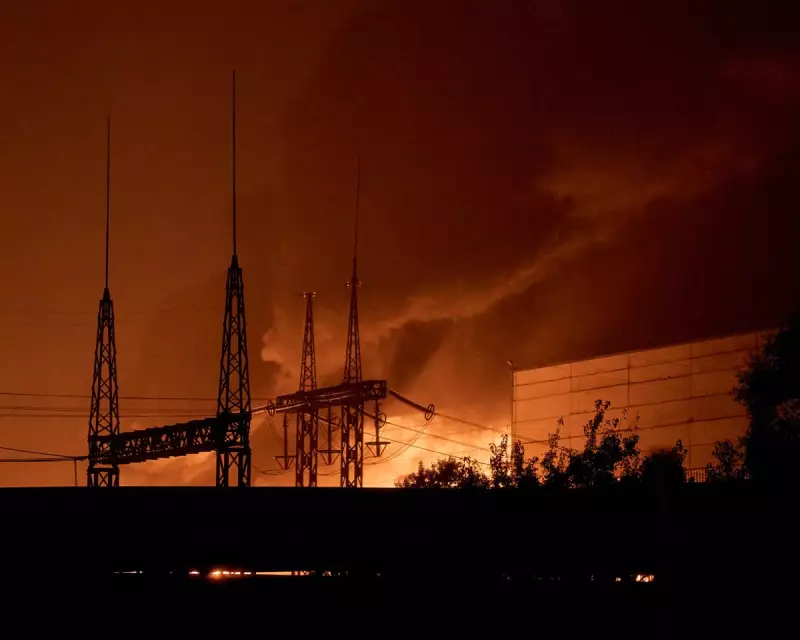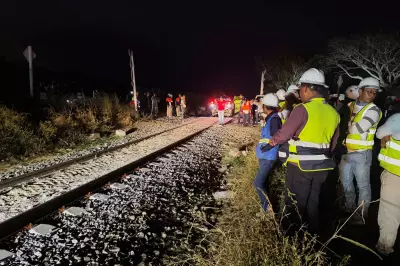
Energy Security Strengthened as Ukraine Faces Winter Challenges
Ukraine has secured a crucial energy agreement with Greece to supply liquefied natural gas (LNG) throughout the upcoming winter months, providing a vital lifeline as Russian attacks continue to cripple the country's energy infrastructure. The deal, signed during President Volodymyr Zelenskyy's visit to Athens, represents a significant step in bolstering Ukraine's defences against energy shortages during what officials describe as a "difficult" winter period.
Strategic Energy Partnership
The landmark agreement between Greece and Ukraine will run from December until March 2026 and involves the supply of US-origin liquefied natural gas. In a joint statement following their meeting, President Zelenskyy and Greek Prime Minister Kyriakos Mitsotakis emphasised that this partnership "marks an essential step in strengthening regional energy cooperation and European energy security." The leaders confirmed the deal would make it possible to "support Ukraine in the midst of a difficult winter" as the country faces systematic targeting of its energy facilities.
The energy agreement comes at a critical time, with Ukraine's State Emergency Service reporting fresh damage to energy infrastructure from Russian drone strikes overnight into Sunday in the Odesa region. Among the damaged sites was a solar power plant, highlighting the broad range of energy facilities being targeted by Russian forces.
Military Developments and Counterstrikes
Meanwhile, Russia claims its forces have made significant advances in south-eastern Ukraine's Zaporizhzhia region, capturing two settlements as part of a major offensive aimed at seizing the entire area. The Russian defence ministry stated that forces had taken Rivnopillya, potentially endangering the southern town of Huliaipole through pincer movements, and Mala Tokmachka, located just 9km from Orikhiv.
Yuri Podolyaka, one of Russia's prominent war bloggers, commented on the strategic importance of Mala Tokmachka, describing it as essentially "the gateway to Orikhiv" and noting that "it is difficult to overestimate the importance of this village for the defence of Orikhiv." Ukrainian officials have not immediately commented on these claimed territorial changes.
In response to these developments, Ukrainian forces struck a major oil refinery in Russia's Samara region, along with a warehouse storing drones for the elite Rubicon drone unit in the partially Russian-occupied Donetsk region. Ukraine's general staff reported explosions and a fire at the Novokuibyshevsk refinery site, though damage assessment remains ongoing. Russian authorities have not immediately confirmed these attacks.
Domestic Reforms and International Support
President Zelenskyy has announced comprehensive plans to clean up Ukraine's energy sector following allegations of a $100 million kickback scheme, described as the worst scandal of his presidency. Over the weekend, the Ukrainian leader revealed an overhaul of key state energy companies, including complete management changes at Energoatom, the nuclear power operator at the centre of the alleged criminal scheme.
Zelenskyy stated that government officials were instructed "to maintain constant and meaningful communication with law enforcement and anti-corruption bodies", adding that "any scheme uncovered in these companies must receive a swift and just response."
International support continues despite these domestic challenges. Finland's President Alexander Stubb told the Associated Press that a ceasefire in Ukraine appears unlikely before spring, urging European allies to maintain support despite the corruption scandal. Stubb emphasised that Europe would require "sisu" - a Finnish term for resilience - to endure the winter as Russia continues its hybrid attacks across the continent.
Humanitarian Efforts and Environmental Concerns
On the humanitarian front, Ukraine is working to resume prisoner exchanges with Russia that could potentially bring home 1,200 Ukrainian prisoners. Zelenskyy wrote on social media platform X: "We are counting on the resumption of PoW exchanges. Many meetings, negotiations and calls are currently taking place to ensure this." This announcement followed progress in negotiations announced by his national security chief the previous day.
Environmental concerns have emerged as Greenpeace revealed that France is sending reprocessed uranium to Russia for treatment despite Moscow's war in Ukraine. The environmental organisation stated that while this trade remains legal, it is "immoral" given many nations' efforts to strengthen sanctions against Russia. Greenpeace members documented approximately ten containers with radioactive labels being loaded onto a cargo ship in Dunkirk, marking the first observed shipment of reprocessed uranium in three years.
France's energy ministry and state-controlled energy company Electricite de France have not responded to questions about the consignment or trade. This development raises questions about the consistency of international efforts to isolate Russia economically while maintaining necessary energy and nuclear material supply chains.





